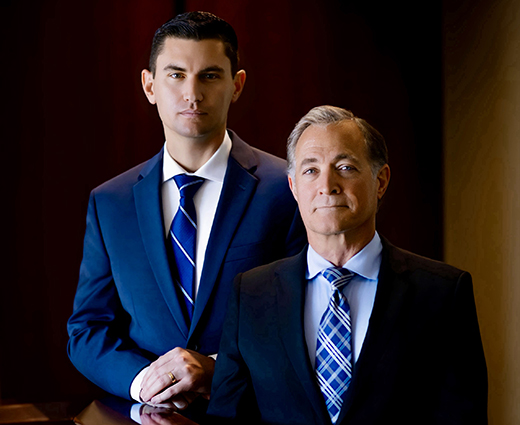California Court Martial Lawyers:
Your Defense Starts Here.
Experienced Civilian Military Lawyers
Defending Service Members Worldwide Since 1987.
California Court Martial Lawyers:
Your Defense Starts Here.
Experienced Civilian Military Lawyers
Defending Service Members Worldwide Since 1987.
Have you or a loved one been accused of a crime in the military? If the accusation is serious, the service member may face a criminal court-martial trial.
When facing a court-martial in California, securing experienced legal representation is crucial to protecting your rights and future. At Military Law Center, our California court martial attorneys have been defending service members for decades, providing trusted counsel and unwavering advocacy in military legal matters.
Why Choose a California Court Martial Lawyer from Military Law Center?
A court-martial can be one of the most challenging experiences in a service member’s career. You need an attorney who understands both the military justice system and California’s unique legal landscape. At Military Law Center, we specialize in:
- General Courts-Martial:
Representing clients in the most serious cases, including charges like desertion, assault, and other criminal allegations. - Special Courts-Martial:
Defending service members against mid-level offenses that can still carry significant penalties. - Summary Courts-Martial:
Protecting clients facing expedited proceedings that could harm their military record.
Our expertise extends beyond courtroom advocacy. We provide comprehensive military legal defense in California, guiding you through investigations, pre-trial negotiations, and administrative hearings.
Comprehensive Military Courts-Martial Defense in California
As a service member, your career, reputation, and freedom are on the line. Our California court martial attorneys bring a deep understanding of military law to every case, ensuring no detail is overlooked. We handle:
- UCMJ Violations: Expert defense against charges under the Uniform Code of Military Justice.
- Pre-Trial Representation: Assistance during investigations, including Article 32 hearings.
- Appeals and Post-Trial Advocacy: Challenging unfavorable verdicts and seeking justice for our clients.
Whether you’re stationed at a California base or deployed worldwide, our team is here to provide the military legal defense you deserve.
Get Help Now
Call us Today at (760) 536-9038 or complete the below form for a free, no obligation initial consultation.
The Court-Martial Process: From Investigation to Appeals:
A court-martial is a serious legal proceeding with distinct stages. Understanding these stages can help you navigate the process and protect your rights.

Investigation:
Military law enforcement begins by investigating the alleged offense. During this phase, you may be questioned about the incident. It is vital to remain silent and consult with an attorney immediately to protect your interests.

Preferral of Charges:
This stage involves your commander formally presenting charges. An Article 32 hearing—a preliminary investigation—might occur before the charges are referred to a General Court-Martial, unless waived by the accused.

Arraignment:
At this point, you will be formally informed of the charges against you. Pleas are typically deferred to align with the Trial Management Order.

Motions Practice:
Your legal team can submit motions to challenge improperly obtained evidence or contest the court’s jurisdiction over your case.

Assembly:
The court-martial convenes, and the selection of panel members takes place. You can challenge potential members based on concerns about impartiality or bias.

Trial:
The trial phase involves the prosecution presenting its case, while your defense team works to refute the charges. Rules of evidence are strict, and having a knowledgeable attorney ensures that your rights are upheld.

Sentencing:
If convicted, the court determines the punishment. Your attorney’s role is to advocate for reduced penalties or alternative sentencing options.

Appeals:
You have the right to appeal the outcome. An experienced attorney can help you navigate the appellate process and seek justice where errors occurred during trial.
What Sets Our Court Martial Lawyers Apart?
- Decades of Experience:
Since 1987, Military Law Center has been a trusted name in military legal defense. Our attorneys have handled thousands of cases, earning a reputation for excellence and dedication.
- Focused Expertise:
We are not general practitioners; we specialize exclusively in military law. This focus allows us to provide the highest level of representation in court-martial cases and other military legal matters.
- Proven Results:
Our track record speaks for itself. From securing acquittals to reducing penalties, we fight tirelessly for the best possible outcomes for our clients.


Why Legal Representation Matters:
Military law is complex and ever-evolving. An experienced civilian military attorney can navigate the legal intricacies of your case and ensure your rights are protected throughout the court-martial process.
The Importance of Legal Representation:
- Negotiating lesser charges or alternative punishments.
- Suppressing evidence obtained illegally.
- Challenging the jurisdiction of the court-martial.
- Ensuring a fair and impartial hearing.
- Filing appeals if necessary.
Benefits of Civilian vs. Military Defense Counsel:
While you are entitled to appointed military defense counsel at a General Court-Martial, there are significant advantages to retaining a civilian attorney specializing in military law:
- Experience and Specialization: Civilian attorneys focus solely on military law and stay up-to-date on the latest legal developments. They may have more courtroom experience than detailed military attorneys who handle a wider range of legal issues.
- Objectivity and Aggressiveness: Civilian attorneys are not part of the military chain of command and can provide a more objective and aggressive defense.
- Caseload and Availability: Detailed military attorneys may have a high caseload, limiting the time and attention they can devote to your case. A civilian attorney can provide more personalized attention.
- Investigative Resources: Civilian attorneys may have access to greater investigative resources than those available to military counsel.
Don’t Wait to Act: Contact Military Law Center Today
If you’re facing a court-martial, time is of the essence. Contact Military Law Center to schedule a free consultation with an experienced California court martial attorney. We’re here to defend your rights, protect your future, and provide the legal support you need.
Military Law Center: Your Trusted Ally
Military Law Center is a team of experienced and aggressive civilian military defense attorneys dedicated to protecting the rights of service members facing courts-martial in California and across the nation.
Military Law Center Is Ready to Help You – Right Now.
Call Us Today – (760) 536-9038

For A Free Consultation
Contact Us Today
Military Law Center:
Your Trusted Ally
Military Law Center is a team of experienced and aggressive civilian military defense attorneys dedicated to protecting the rights of service members facing courts-martial in California and across the nation.

